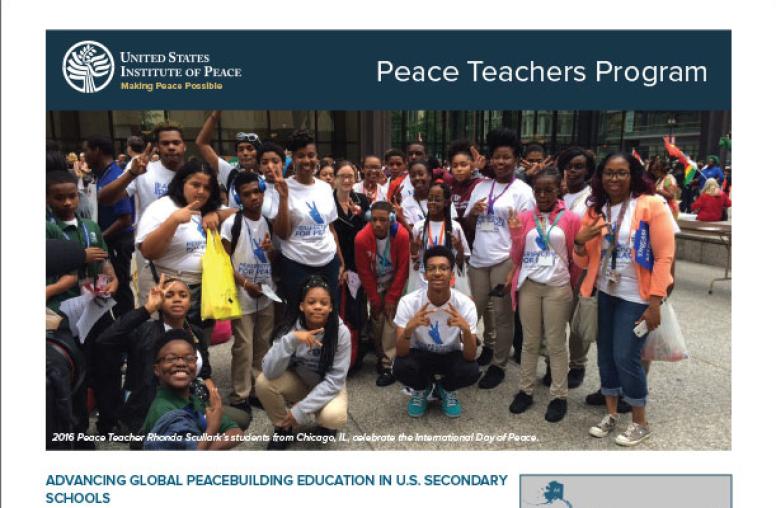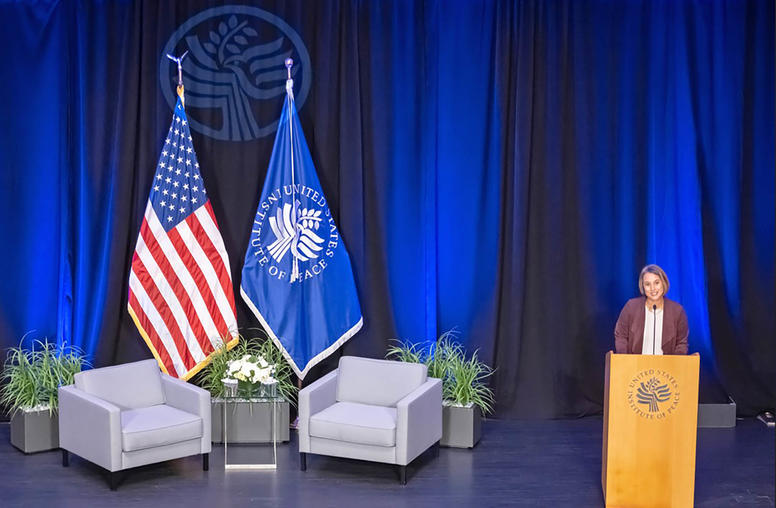After COVID, How Can Youth Help Address Gender-Based Violence?
USIP’s New ‘YouthTalks’ Series Explores Youth Engagement in Peacebuilding
Dubbed the “shadow pandemic” by the United Nations, gender-based violence rose dramatically during the COVID-19 crisis — particularly in fragile and conflict-affected contexts. This unprecedented increase has challenged efforts to mitigate gender-based violence around the world, leaving policymakers in search of adaptive and successful strategies. As young people assume more prominent roles on the front lines of resolving conflict and building peace, youth have been a largely untapped resource for addressing gender-based violence at the community, national and international levels.
English
Spanish
Arabic
On August 4, USIP hosted the first event in our new series, YouthTalks. Organized by the USIP Youth Advisory Council, YouthTalks facilitates conversations between youth peacebuilders from conflict affected regions on key issues related to peace and security. This inaugural event featured youth peacebuilders from Venezuela, Morocco, South Sudan and Afghanistan as they discussed how gender-based violence has changed since the start of the pandemic, the impact of COVID-19 on different genders and regions, and new approaches for addressing issues at the cross-section of age, gender and conflict.
Continue the conversation on Twitter using #USIPYouthTalks.
Speakers
Paula Porras, welcoming remarks
Program Officer, Youth Program, U.S. Institute of Peace
Negar Ashtari Abay, framing remarks
Program Officer, Gender Policy and Strategy, U.S. Institute of Peace
Panel Discussion
- Jau Raminez
Director, Somos Mov; USIP Generation Change Fellow from Venezuela - Soukaina Hamia
Account Manager, Women in Governance; USIP Generation Change Fellow from Morocco - Nyachangkuoth Rambang Tai
Gender Advisor, Assistance Mission for Africa; USIP Generation Change Fellow from South Sudan - Sohaila Rezaee
USIP Generation Change Fellow from Afghanistan
Sophia Santi, moderator
Co-Chair, USIP Youth Advisory Council; USIP Generation Change Fellow
Paula Porras, closing remarks
Program Officer, Youth Program, U.S. Institute of Peace



